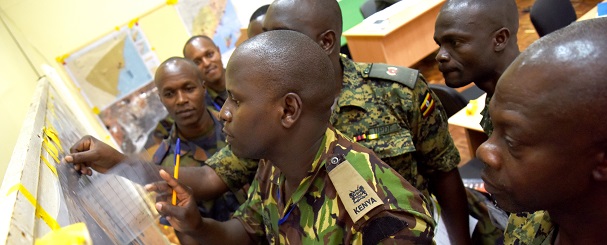

Vivid examples of weak military professionalism in Africa are regularly evident in news accounts of instability on the continent. Militaries collapsing in the face of attacks by irregular forces, coups, mutinies, looting, human rights abuses against civilian populations, corruption, and engagement in illicit trafficking activities are widespread. This pattern persists decades after the end of colonialism, despite billions of dollars of security sector assistance and longstanding rhetoric on the need to strengthen civil-military relations on the continent. The costs for not having established strong professional militaries are high: persistent instability, chronic poverty, deterred investment, and stunted democratization.
The reasons for the ongoing inability to establish effective, respected militaries in so many African countries are complex but largely stem from political incentives. African militaries created in the colonial era were intended to protect the government from rather than for citizens. To do this, ethnic minorities were often disproportionately recruited into the militaries as a check on majority groups. These patterns persisted in the post-colonial period as military leaders from minority groups had strong incentives to resist a transition to democracy and majority rule. Lacking systematic checks and balances, the interweaving of political, military, and economic interests has endured and, in some cases, intensified in the decades since the end of colonialism. Control of the military has been seen as the vehicle to power and wealth in Africa. Corruption has flourished. This has fostered a politicization of the military and ongoing competition and collusion among politicians and security leaders seeking to gain the upper hand. In addition to systematically weakening the capacity of the military, these patterns have bred deep fear and distrust of the security sector by the general population, further fueling instability and limiting popular support in combating insurgencies.
Breaking this spiral of vested interests that undermines efforts to build military professionalism in Africa will require more than capacity building. Rather, sustained initiatives are needed to address the fundamental political disincentives to reform and establish constructive civil-military relations. Business as usual will not suffice. National security reviews that include the general public are required to redefine the mandate of Africa’s militaries in an era when many threats are internally based. Reorganizing security force structures to better match identified threats and integrating missions into a comprehensive and coherent defense policy will enhance the relevance, operational capacity, and prestige of Africa’s militaries.
As part of this process, the responsibilities of the nation’s armed forces to its citizens must be specified. A clear code of conduct, supported by a sustained effort to assimilate ethical values across the force, is needed to establish and reinforce norms of constitutionalism, integrity, service, and respect for human rights. To reinforce this, military ombudsmen, outside the chain of command, should be established and strengthened to ensure there is accountability for violations of military conduct. Likewise, stronger sanctions are needed for military and political leaders engaged in the politicization of the security forces. In other words, efforts to strengthen military professionalism must address political as well as military leaders.
More robust internal and external oversight mechanisms of the military are also needed to ensure funding is being appropriately expended in the interests of national security. Of particular priority is the need for more hands-on strategic oversight of the security sector by the responsible legislative bodies. African legislators must more actively debate the purpose, goals, policies, budget, spending, promotion practices, and performance of the military. Nonstate actors, primarily civil society and the media, also have an important oversight function by raising awareness of the role of the military among the general public and drawing attention to areas of reform.
Military professionalism is consistent with African values. This is clearly visible in select African countries where the ties between politics and the security sector have been broken and the military is a respected institution and welcomed as a defender of the people. It is the aspiration of nearly all African citizens that these attributes become the norm throughout the continent. Breaking the spiral of instability, poverty, and misgovernance depends on it.

